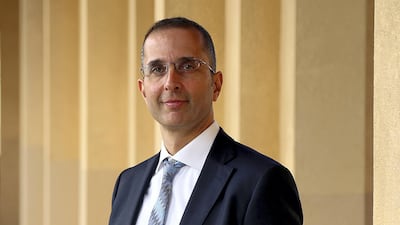Ras Al Khaimah, the UAE’s northernmost emirate, is looking to kick-start its renewables and efficiency programme and is weighing up possible targets of 25 to 30 per cent clean energy in its power mix by 2040.
“We have estimated a potential of about 25 per cent of the total consumption to come from renewables in Ras Al Khaimah towards the end of our strategy, so we’re talking about 15 to 20 years from now,” said Andrea di Gregorio, director of the newly set up energy efficiency and renewables office in the RAK Municipality.
Ras Al Khaimah is a new entrant to the clean energy drive in the region, having set up its renewables and energy efficiency office six months ago.
The UAE, which currently meets 98 per cent of its power generation needs from gas, targets increasing clean energy use by 50 per cent and improving energy efficiency by 40 per cent by the middle of the century, deploying a total capacity of 44 gigawatts from renewable sources by 2050.
While Ras Al Khaimah’s population is about 300,000 and small in comparison with Dubai’s nearly 3 million residents, the UAE’s fourth-largest emirate is home to highly energy-intensive industries, including one of the world’s largest ceramics tile manufacturing facilities as well as a sizeable cement industry.
The industrial sector, which accounted for 40 to 45 per cent of the 5.3 Terrawatt hours (TWh) the emirate consumed last year, will be a main target of its energy management initiatives.
Ras Al Khaimah will arrive at defined renewable and energy efficiency targets “in three to four months,” said Mr di Gregorio.
Among the tentative plans being considered include rolling out the first phase of utility scale solar photovoltaic (PV), five to 10 per cent of the mix by 2025, with the second phase accounting for 10 to 15 per cent by 2030.
The International Renewable Energy Agency, headquartered in Abu Dhabi, estimates solar PV module prices have decreased 80 per cent since 2009. These falling prices have increased their uptake. A report by the US department of energy puts new deployment at 75 GW globally in 2016, with an additional 69GW to 109GW set to be installed by 2020.
Countries in the Middle East have also warmed up to PV deployment. Saudi Arabia is slated to this year tender about 3.25GW of solar PV projects in its inaugural renewables round.
Ras Al Khaimah currently meets its energy requirements entirely through gas sourced from the Dolphin pipeline that delivers 2 billion cubic feet a day of the fuel to the UAE from Qatar’s North Dome field, one of the largest in the world.
_______________
Read more:
Saudi Arabia targets energy efficiencies of 40GW hours in 2018
Ras Al Khaimah launches new oil and gas licensing round
_______________
Earlier this year, the emirate’s gas company said it is launching a licensing round in a bid to diversify sources of the fuel, particularly for industrial use.
Ras Al Khaimah’s aspirations, “which are subject to regulations by the Federal Electricity and Water Authority,” include an initial phase-in of energy savings of about 20 per cent and 15 per cent water savings for new buildings in the emirate, added Mr di Gregorio.
Across the UAE, energy efficiency initiatives have slowly gathered momentum. In 2016, Dubai announced targets for energy savings – 20 per cent by 2020 and 30 per cent by 2030 – and to generate energy savings of 1.7TWh as well as water savings of 5.6 billion imperial gallons in the next 12 years.
While Abu Dhabi has not specified targets, the emirate’s Department of Economic Development announced last year that it had opened accreditation for energy service companies (Escos).
The Ras Al Khaimah municipality’s renewable and energy efficiency office currently acts as the emirate’s Super Esco and has begun the process of accreditation with five Escos already registered, said Mr di Gregorio.
The emirate also plans to pilot a retrofit of public buildings to become more energy efficient and is considering waste-to-energy, solar heating programmes as well as deploying electric vehicles and charging stations as part of its initiatives.


